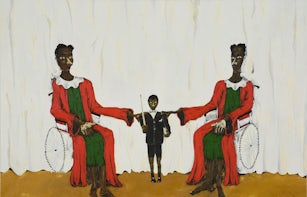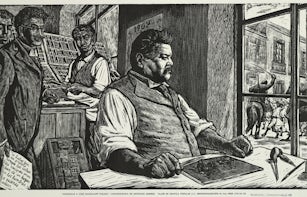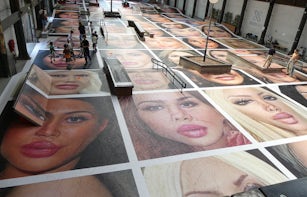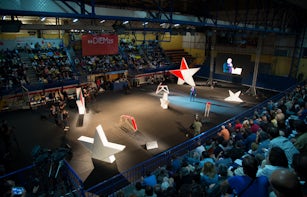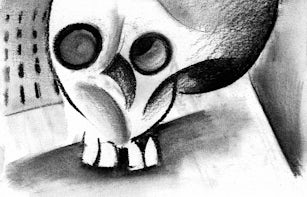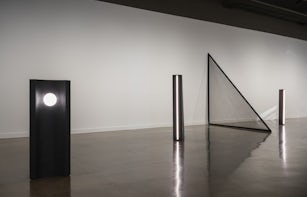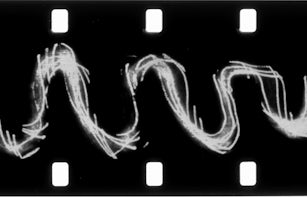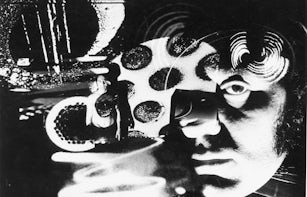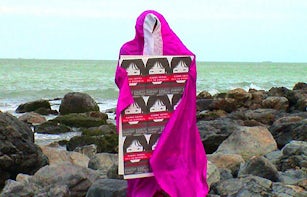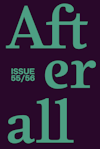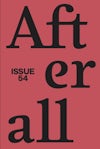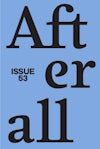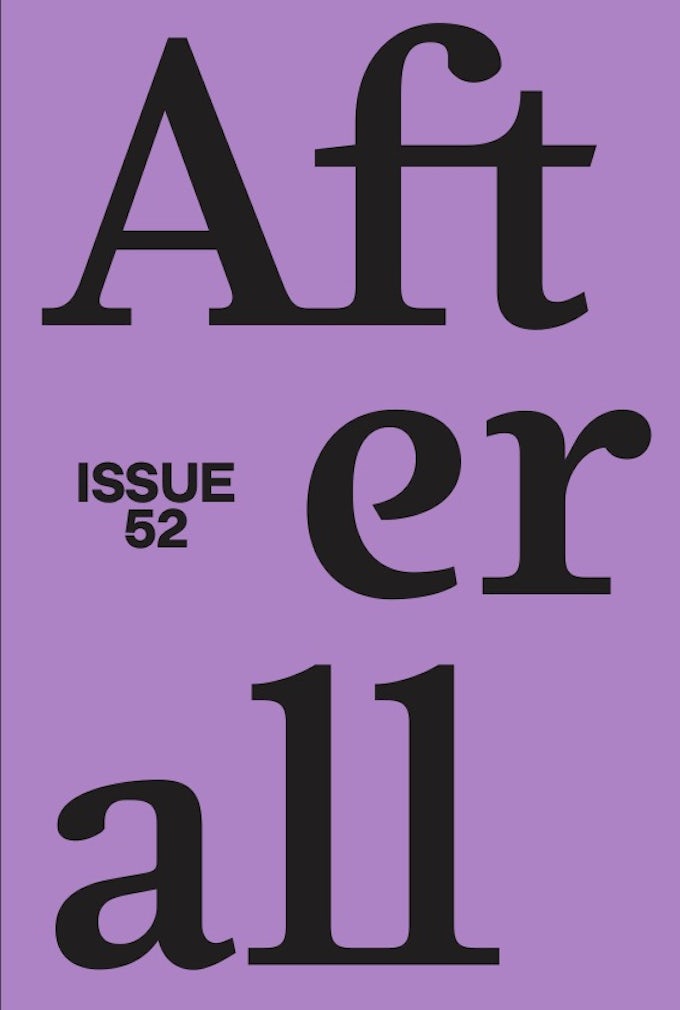
Issue 52
Autumn/Winter 2021
Afterall is pleased to present issue 52, ‘New Politics’. We seem to experience yet another version of the discontents of civilisation, paralleled by the search for new political responses. The emergence in recent times of new forms of political claims and demands and the structural inequalities, both at local and global level – exacerbated by the biopolitical governmentality of the past two years and by digitisation – has reshaped the maps of the sayable and unsayable and forms of political expression and organisation. The traditional political apparatus and its vertical organisation are increasingly paralleled if not challenged by a proliferation of voices and their calls for recognition.
Art, as the traditional sphere for progressive politics and for the exploration of the political by other means, offers a front seat to observe these dynamics and is in fact one of its main contemporary stages. In this regard, the ‘new’ in the title is perhaps misleading as it might recall, for some, old modernist cries for the search of novelty and progress and constant orientation towards futurity. By new, what the editorial team had in mind is perhaps closer to a certain contemporary structure of affect as a response to what are indeed new types of claims leading to new aesthetic positions and artistic sensibilities.
Editors: Elisa Adami, Amanda Carneiro, Nav Haq, Mark Lewis, Adeena Mey and Charles Stankievech.
Founding editors: Charles Esche, Mark Lewis.
Table of contents
Contextual essays
- The Taller de Gráfica Popular: Collectivity, Popular Prints and Transient Muralism – Natalia de la Rosa
- Searching for Iemanjá – Thomas (T.) Jean Lax
- The Power of Vulnerability: Art in the Digital Woke Age – Pascal Gielen
Artists
- Jonas Staal: Re-Forming Representation – Sven Lütticken
- Propagate Autonomy: On Jonas Staal, Captain America and Willi Münzenberg – Kim West
- SovMod Skull – Nikita Kadan
- Logarithm – Irenosen Okojie
- Revealing the Past, Illuminating the Future: Kapwani Kiwanga’s Flashbacks – Elvan Zabunyan
- Matter Minding, or What the Work Wants: Aldo Tambellini’s Intermedia – Hanna B. Hölling
- Black Is… Unpacking Aldo Tambellini’s Radical Blackness – Barrington Matthew
- Ip Gim: Feminist Art and Activism in South Korea – Hyeonjoo Kim
Foreword (excerpt)
Written by Adeena Mey
By titling Issue 52 ‘New Politics’, it may look as if it were innovation and novelty in the political field that are invoked. We seem to experience yet another version of the discontents of civilisation, paralleled by the search for new political responses. The emergence in recent times of new forms of political claims and demands and the structural inequalities, both at local and global level – exacerbated by the biopolitical governmentality of the past two years and by digitisation – has reshaped the maps of the sayable and unsayable and forms of political expression and organisation. The traditional political apparatus and its vertical organisation are increasingly paralleled if not challenged by a proliferation of voices and their calls for recognition. Art, as the traditional sphere for progressive politics and for the exploration of the political by other means, offers a front seat to observe these dynamics and is in fact one of its main contemporary stages. In this regard, the ‘new’ in the title is perhaps misleading as it might recall, for some, old modernist cries for the search of novelty and progress and constant orientation towards futurity. By new, what the editorial team had in mind is perhaps closer to a certain contemporary structure of affect as a response to what are indeed new types of claims leading to new aesthetic positions and artistic sensibilities.
And if all are not ‘new’, the plural geographies and the ‘minor’ archives they excavate and bring to the fore do shape an artistic landscape that articulates a different idea of the global, feels both contemporary and inactual and which, hopefully, contributes to shifting the positions within sensible configurations and to estranging prevalent modes of saying and doing.
Purchase
The publication is available for purchase. If you would like specific articles only, it is also available individually and to be downloaded as PDFs.
Purchase full publication
Buy via University of Chicago Press
Buy via Central Books
Purchase individual articles
Buy via University of Chicago Press
